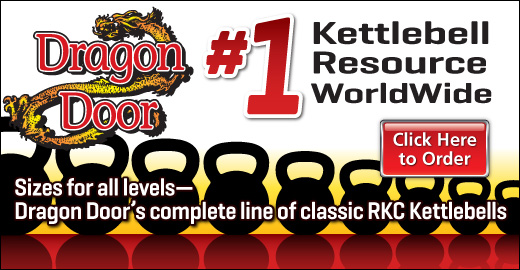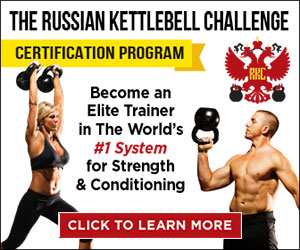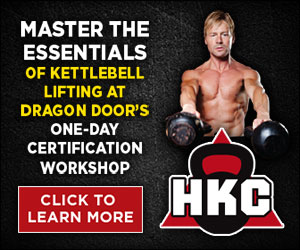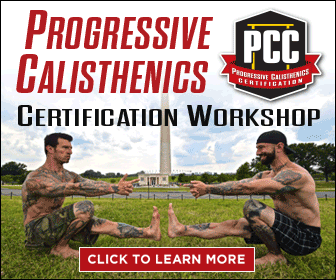
These questions pop up a lot in day to day life online, in person, and always in email. So, it seems more than fair to answer them here for you too!
Q: I’m a personal trainer, group fitness instructor, strength coach, exercise enthusiast, etc. I want to learn more about kettlebells and fitness in an intensive way, which workshop should I choose? What’s the difference between the HKC, RKC, and PCC? And why would I choose one over the other? Should I take them all?
A: Congrats on wanting to futher your knowledge! First off, anyone can take the HKC, RKC, and PCC workshops, instructors, trainers, and people from other fields who are just THAT into it! The HKC stands for Hardstyle Kettlebell Certification and is a one day, 8 hour workshop that focuses on the absolute fundamentals of kettlebell training focusing on the kettlebell swing, goblet squat, and the get-up. While that might sound overly simplistic, the real power of the HKC is that it leads towards mastery of these movements. Anyone already involved with kettlebells knows the extreme transformative power of a CORRECTLY performed kettlebell swing, and the heartbreakingly horrible look of an incorrect swing like popular media and tv fitness personalities love to shove into the collective consciousness.
Chances are if someone says they have “figured out” the swing without specific coaching, they’re not getting the full benefits from it at the very least. Worst case they’re en route to injury. The HKC workshop will give you the tools, knowledge, and mental framework to troubleshoot the most crucial (and most transformative) elements of the kettlebell basics. So if you or your clients have “tried everything” and still aren’t getting dramatic results from kettlebell training, I would strongly encourage you to sign up for an HKC in your area immediately. The newly revised, upgraded HKC manual is also incredibly valuable as it includes everything covered that day along with sample workouts, and a comprehensive joint mobility warmup. The HKC is also a great precursor to the RKC Workshop for those who wish to take their kettlebell training to the next level.
The HKC also really breaks down the get-up, a powerful sequence of movements that can really seem perplexing at the beginning. When I teach it, I break it down big time, and so does the HKC–all while teaching you how to teach it too. Unlike many fitness “certifications” out there, even this entry level certification is physically rigorous and the testing is taken very seriously. Arrive prepared if you plan to pass the HKC at the workshop. Certified HKC instructors in good standing receive an instant $200 discount when they register for the RKC….
The RKC or Russian Kettlebell Certification workshop is a three day comprehensive workshop that goes into even more detail with the basics and expands into the subtles of the kettlebell clean, front squat, military press, and kettlebell snatch. Testing is taken very seriously, and you should absolutely review the requirements for your age and weight class before signing up for the RKC. Working with an RKC instructor in your area before going is also a really REALLY good idea. After passing the three day RKC workshop, you will be poised to become the kettlebell expert of your area and have the opportunity to really set yourself apart as a trainer/instructor who gets results for all fitness levels safely. The RKC also comes with a newly revised, updated, and expanded manual, which I think is vastly superior to the one I originally received when I first went through the certification in 2010. The same can be said for the new manual for the RKC-II by the way. Recerting in both is highly encouraged as the info is constantly evolving and improving!
The PCC is actually not a kettlebell workshop at all and stands for Progressive Calisthenics Certification. This is a full three day workshop comparable in scope and intensity to the RKC–but for bodyweight exercise. It stands alone as its own complete system, or can add to your RKC or HKC knowledge in a very compatible way. The way I train (myself and others) is a very seamless blend of the info from the RKC and the PCC, so many of the programming ideas can be used from both with both to great effect. While there’s always a lot of very impressive photos that end up on social media from PCC workshops, the true power of the PCC is the philosophy and early progressions you will learn, and learn how to teach to people of all fitness levels.
This is also something I’ve always loved about Convict Conditioning the emphasis on the power of the basics at the beginning. It always used to kill me when I’d substitute teach a local boot camp when I’d see people banging out terrible push up reps, not wanting to improve their form, only wanting to get in those numbers and “that burn”. If only they could see how they looked when doing these things!
I’ll talk about it more on another post for another day, but I like to make sure that whatever I demonstrate–whether a beginner move or not–I want it to be an expression of strength, power, and control. And yes, that is absolutely possible with something as humble as a wall push up or knee push up. And having that kind of attention to detail REALLY comes in handy down the road in your own training. Getting these movement patterns down (or back) can literally put you or your clients back in “the game”.
The PCC info is also really great for approaching populations who may not want to venture into a gym environment, as you will now know how to get in a great workout or lead a great workout anywhere for anyone.
This new post on the RKC Blog is so good that it needs its own little info box:
Fundamental Human Movements and Training in Opposite Planes of Motion by Sebastian Müller

So… you’re looking to purchase a kettlebell book as a reference or to enhance your training and there are choices on Dragon Door… the venerable Enter the Kettlebell or the new Master the Kettlebell. Short answer, is I’m recommending Master the Kettlebell, it’s a consise and fully updated book on kettlebell training that echos what is currently taught at the RKC Workshops. It’s a clearly written reference and has additional info on mobility, and self-massage at the beginning. Also, I may be biased because my own approach to exercise programming is similar, but Max really lays out the details and basics of his highly effective approach to creating workouts for himself, clients, and groups.
While neither books (in my opinion) are meant to be replacements for in person training with a qualified instructor, they can help your reinforce and remember what you learned during your session.
Master the Kettlebell is my current choice as go-to kettlebell book for reference and for recommending to others, it’s fully up to date with clear photos (of Max Shank AND Beth Andrews) demonstrating the exercises. It’s great to have male and female examples of the movements and these two accomplished athletes and coaches are just perfect for the job. You can see what they’re doing and then read all about it. Master the Kettlebell is also a fantastic resource and reference for creating your own program and has plenty of starter examples you can use right away.
This is not to say that Enter the Kettlebell no longer has value. It absolutely does. Someone experienced with kettlebells who is able to get the ideas though the form has evolved since then will find a lot of value in it. Fans of Pavel will also be inspired and amused by the wisdom, catchphrases, and seemingly unintentional humor (well at least that’s how I took it). There’s also some nice basic approaches to programming.






Leave a Reply